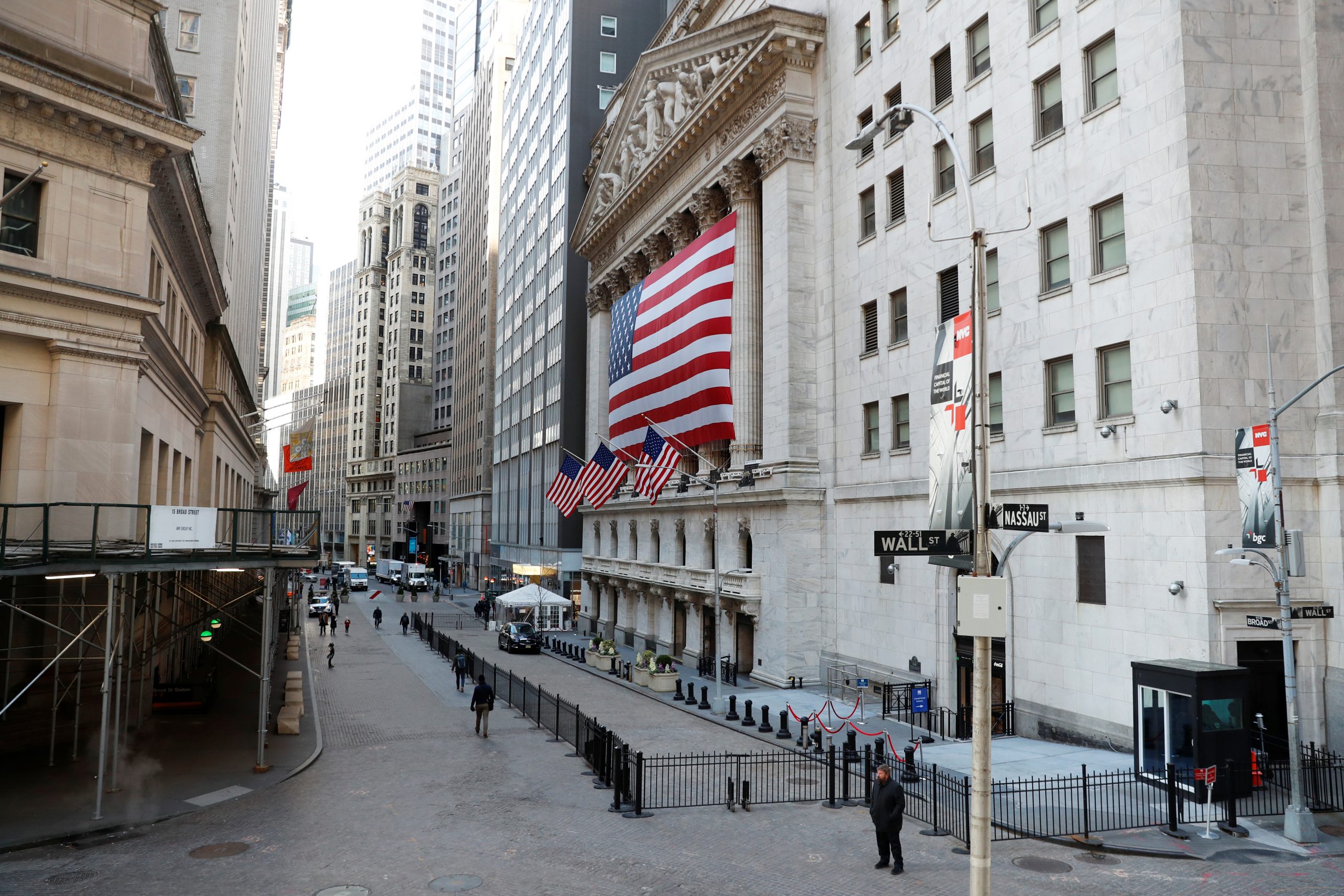U.S. states pleaded with the Trump administration on Monday to coordinate a national response to the coronavirus outbreak, saying patchwork measures enacted by state and local authorities were insufficient to confront the coast-to-coast emergency.
New York City Mayor Bill de Blasio and New York Governor Andrew Cuomo, both Democrats, called for bold federal action involving the U.S. military and the Army Corps of Engineers. The U.S. death toll from the outbreak rose to 65 over the weekend, prompting fears U.S. hospitals will soon be overrun similar to medical centers in Italy.
As traders reacted to drastic weekend measures from the Federal Reserve to stave off a global recession caused by the virus, U.S. stock markets swooned anew on Monday morning. The broad-based S&P 500 tumbled 8% at the opening, triggering an automatic 15-minute halt of the three main stocks indexes for the third time in six days.
President Donald Trump, a Republican, declared a national emergency on Friday and has championed his government’s response. Democratic leaders have criticized him for downplaying the crisis and issuing misleading or false statements.
“This should be a reality where the United States is put on a war footing, where the federal government mobilizes all the resources necessary – and it begins with testing,” de Blasio told MSNBC.
“We’re going to have to set up emergency ICUs in hospitals, not only all over New York City, all over America. We’re going to need the United States military to come in with their substantial logistical and medical capacity,” he said.
Cuomo said the federal government needs to draw up uniform measures for all states to follow, rather than have each state act independently. He warned of a looming crisis as the U.S. healthcare system will get overwhelmed with patients.
Many localities are following the recommendation of the U.S. Centers for Disease Control and Prevention (CDC) against large gatherings for two weeks.
At least 33 states have decided to close public schools, which combined with district closures in other states has shuttered least 64,000 U.S. schools, according to Education Week.
The White House canceled the annual Easter egg roll on the White House lawn out of an abundance of caution. “The health and safety of all Americans must be the first priority, especially right now,” First Lady Melania Trump said in a statement.
More than 30 U.S. states have closed schools and at least five states have shuttered bars, with Michigan joining the list on Monday. Other localities have shut down cinemas, theaters and concert venues.
NOT ENOUGH TESTS
The United States has lagged behind other industrialized nations in its ability to test for the novel coronavirus. In early March, the Trump administration said close to 1 million coronavirus tests would soon be available and anyone who needed a test would get one, a promise it failed to keep.
Asked on CNN whether Connecticut had enough tests, Governor Ned Lamont said: “No.”
“I don’t know where the federal government was, we should have been doing this weeks ago so we could have isolated people earlier on when we found out that they were carriers,” he said.
There were further calls for urgency from within the Trump administration. U.S. Surgeon General Jerome Adams said it was important to react aggressively to combat the spread of the virus.
“We are at a critical inflection point in this country,” Adams said in an interview with Fox News.
“We are where Italy was two weeks ago in terms of our numbers and we have a choice to make as a nation: Do we want to go the direction of South Korea and really be aggressive and lower our mortality rates or do we want to go the direction of Italy?”
Italy is the second-worst hit country in the world after China, where the illness first emerged late last year. The Italian outbreak has shown no signs of slowing, with 24,747 cases and 1,809 deaths by Sunday.
South Korea has been widely praised for its strict measures to control the virus.
White House trade adviser Peter Navarro said on Monday he was preparing to bring an executive order to Trump that would help relocate medical supply chains from overseas to the United States during the coronavirus outbreak.
Navarro, in a CNBC interview, also said Trump’s push for a payroll tax cut would provide enough stimulus to help combat the economic damage from the coronavirus.
(Reporting Susan Heavy, Doina Chiuca, Maria Caspani and Rama Venkat; Writing by Daniel Trotta and Alistair Bell; Editing by David Gregorio and Bill Berkrot)

























 Continue with Google
Continue with Google